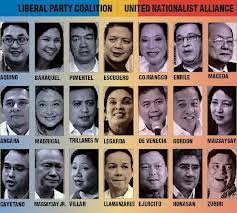
Love them or hate them, one thing never changes about elections in the Philippines: they are packaged as the practice of a deep and welcoming democracy. Welcoming that is, to the waves of the Philippine masses, the common folk of the country upon whom Philippine democracy is supposed to be founded on.
But the term “democracy” is used in different countries to mean different things. The tumult of democracy as we come across it in the Philippines is stocked with charitable rhetoric woven with promises for the people, promises that flow into the social consciousness as important talking points that will one day ring with the sound of gainful consummation for anyone and everyone. This rhetoric soon gives way though to familiar political terrain, to terrain where progressive change becomes the vernacular currency of the day but then is explained away as being impractical, untimely, or just not worth talking about anymore.
Things have to change for them to stay the same. So the saying goes. It is a tried-and-true alignment in Philippine politics and society. Like many of their predecessors, the newly-elected solons to the Philippine Senate know how to talk up a storm about presuming to be champions of the masses and political phoenixes rising from the ashes of socio-political apathy and economic drift, as well as personifications of national unity with the Filipino people.
A reality check is needed here: once you escape the abject bubble of smiling, inviolate imagery and appealing name and face recognition, you might reasonably ask what this scathing portrait is before you. It is a spine-shivering portrait of what is no longer one of the most honorable institutions of the land. From top to bottom you can pick out at least half dozen individuals who have no intellectual or ethical right to be in the senate, let alone run in a campaign for it.
In the pairing of the Philippine electoral process with the disconsolate principle of primarily voting for the most fashionable and recognizable candidates---instead of the most qualified ones---Philippine elections have been preserved as token objects of democratic legitimacy. It is an electoral precondition that Filipino voters are allowed a chance to express their political free will through the instrument of the election. Instead, what really gets expressed are populist projections of support for unscrupulous, opportunistic, stage managed candidates who seldom represent the best interests of the people.
The voters’ blind fervor for candidates who patronize the exercise of their political rights strengthens the rule of the powerful and wealthy in the Philippines. The last time I looked, this socio-political state of affairs was called an oligarchy. To their minds at least, if they have to pick a bunch of life-sized oligarchs for office, then Filipinos are free to pick their own along with the oligarchs’ sons and daughters. In Philippine politics, dynastic blood is thicker than the free and fair ballot. By modern standards, this is not even a democracy variant. The only way to identify this sobering hyphenization of democracy as anything but anti-democratic is to wake up each morning and to tell yourself that the sun came up because it revolves around the earth.
Really now, what are the newly-elected senators going to do that will be any different from what their inept and hypocritical predecessors did? Will these kindred souls do anything to alleviate poverty? Will they be the bane of dirty, corrupt, self-serving politicos? Will this hand-picked group of twelve continue to play their likely roles of public underachievers who won’t dare rock the boat? If history is to be any indicator, then Filipino voters, because of their benighted choices, have unwittingly helped undermine Philippine democracy.
Politicians in a democracy are supposed to take on their constituents’ general vision of things, their riveting dreams, their visceral fears, their suitably sized universe of plans and intentions. But in the treacherously real world of Philippine political history and culture, this democratic expectation is poison for entitled, self-seeking politicians who currently fill the Philippines’ legislative branch with their hot air and grating unconcern.
It wasn’t hard to be discontented with the latest charade of a national election in the Philippines. Some of the political faces may have changed, but the lethargic, dismissive spirit remains among the senators both new and old. As I said before, things must change in order for them to remain the same.
ALLEN GABORRO
Comments
Post a Comment